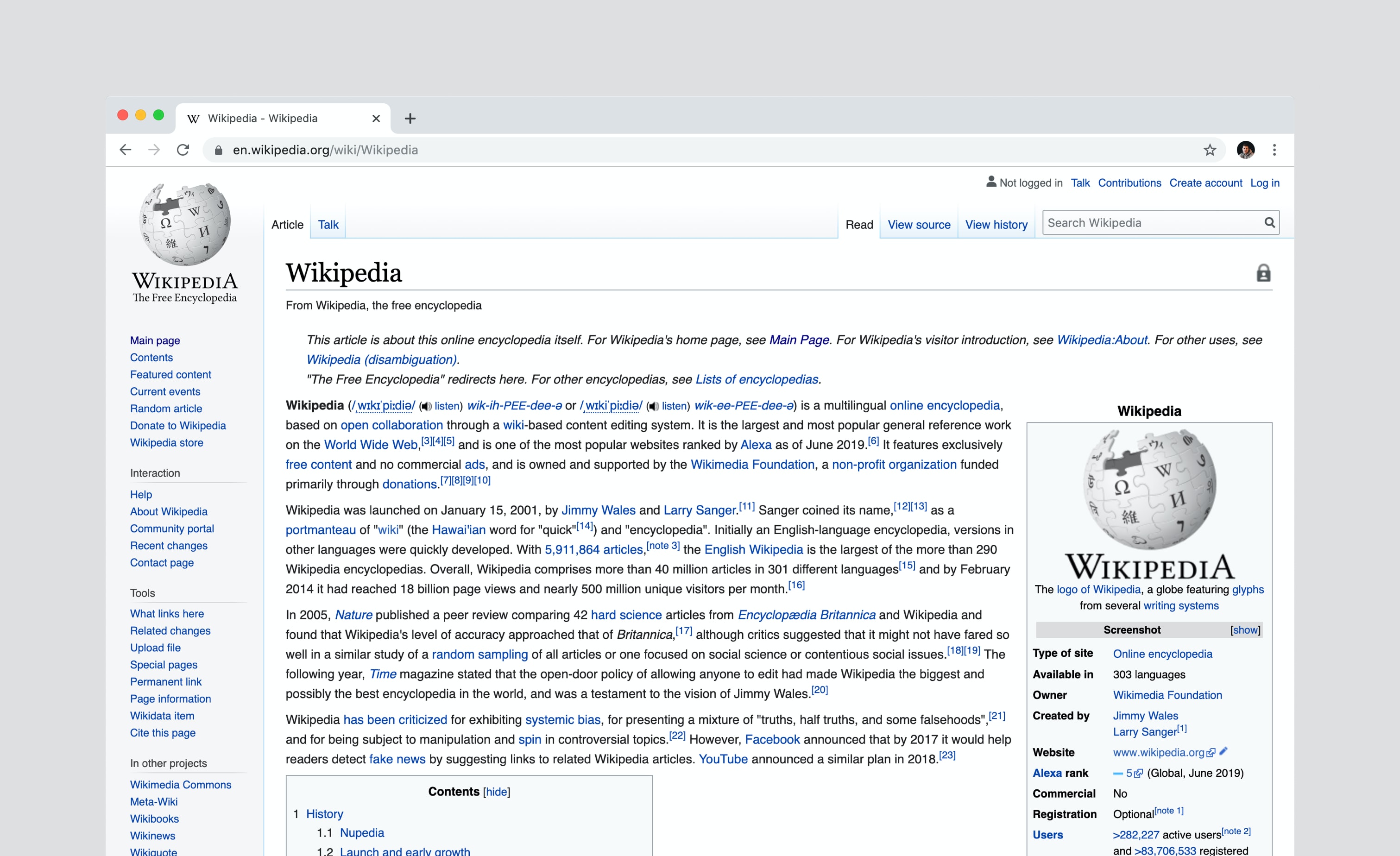Put your growth on autopilot
GrowSurf is modern referral program software that helps product and marketing teams launch an in-product customer referral program in days, not weeks. Start your free trial today.
Persuasion is, it could be argued, at the heart of all marketing. Person X persuades Person Y to buy a product or service from them through a certain means. In this day and age that could be through content on a website, a digital ad, sponsored content, or other marketing channels. There are myriad ways. But as with all marketing, there is a set of 6 (+1) core principles of persuasion that can guide your strategy.
While you'd think that persuasion marketing has been around for centuries, the initial principles were only outlined 30 years ago in a book by Dr. Robert Cialdini. In his seminal work Influence: The Psychology of Persuasion, he covers 6 science-backed principles of psychology that can be applied to marketing today.
The sharp-eyed among you will have noticed that this article is titled according to the "7 Principles of Persuasion in Marketing" but Cialdini has only set out 6 in his original book. This was the case in the first edition, but he has since added a 7th principle in his follow-up book Pre-Suasion: A Revolutionary Way to Influence and Persuade - the Unity Principle.
When it comes to your own marketing strategy, these principles can and will pay dividends when applied to your own work. The main benefit is that, when applied accurately and astutely, they will improve your chances of gaining conversions at every stage of your funnel. As one expert notes, "Persuasion is the heart of all marketing. Person X persuades Person Y to buy a product or service from them through a certain means."
According to marketing experts, Cialdini's principles of persuasion "can be used positively to influence people and show them how their problems can be solved using the product or service that you are offering." The 7 core principles are:
You scratch my back, I’ll scratch yours.
In any given social context, people generally feel like they owe someone something if that person has done them a favor or given them something. This plays on the old adage, you have to give something to get something. Think of it like a typical referral marketing program: you offer the referee something in exchange for new business. The Reciprocity Principle is often seen as the leading principle within this group, which explains why it is sometimes referred to as the Norm of Reciprocity. As one expert notes, "Businesses typically display customer testimony on their websites, developing a 'wall of social proof' approach."
Making reciprocity work for you:
Give first- this puts the customer into a situation where they feel like they owe you something
Limit who gets it- exclusivity goes a long way, everyone wants to walk through a door marked VIP only.
Make them feel special- talk to them directly, from you personally. Personalization goes a long way.
Wikipedia relies heavily on the reciprocity principle. The fact that anyone and everyone can use the platform completely for free, for as long as they want, whenever they want creates a fair amount of guilt when they ask for a measly $2 once a year. This taps into the principle of reciprocation, where "obligate people emotionally by giving them something" first before making an ask.

Zoom is another prime example of giving away just enough of their platform completely free that it leaves you wanting more and wanting to explore additional features (not that a lot of them are hidden behind a paywall...). As marketing experts advise, "When you do something nice for someone, they feel obligated to reciprocate. So when you pitch them your product or service, they will be more likely to buy it because they already feel like they owe you."
Consistent action creates consistent results.
Humans are hardwired to prefer routine, consistent practices and set schedules through commitment. This might be a broad brushstroke but it's generally true. People like what they like. Rather than force yourself to go through the agony of choice time and time again, potentially hundreds of times a day, people will naturally commit to a certain item and use it time and time again. This is how people end up having the same breakfast everyday for 30 years, or buy the same pair of shoes over and over again. As one expert explains, "Commitment — secure a small commitment, then build on it; people don't want to back out on the initial commitment, so they are more likely to comply with new terms."
The principle outlines this to the point where, eventually, there isn’t even a consideration during the choice process. In fact, it just happens automatically. This is the principle that encourages you to build brand loyalty with your customers.
Furthermore, it's not just customers that reward loyalty. Social media algorithms are fans of consistency and regular posting. Instagram, in particular, appears to reward content creators who consistently commit to using the platform to share their content. As one expert notes, "To correctly use the power of persuasion, you should know how to make use of the triggers properly for influencing the customers. Several actions are done automatically and the same goes for buying a product or availing a service."
Making commitment and consistency work for you:
Baby steps at first- don’t dive in too soon with a big ask, start small and grow.
Make them say it outloud- by making their commitment public, they’re less likely to drop out.
Give back- They need to feel valued, so offer a reward for their commitment.
Supermarkets are great at leveraging commitment through their loyalty programs. The simple question of “ Do you have your X Loyalty Card?” implies that you’re not a loyal customer if you don’t and if you’ve forgotten it, you feel bad that you’re missing out on potential rewards.

If you’ve ever lived in a location with an election going on, you’ll have seen the small commitments being said out loud in the windows and front lawns of local houses. Putting up a small sign is a small commitment versus actually voting or encouraging others to rally to a cause.
I want what they have!
Very few people in the world are keen to be early adopters. In fact, the majority of the world prefers to follow the herd and use products which already have proven popularity. Think of the Amazon star and review system - as one expert notes, "Social Proof — testimony of peers" is a key principle of persuasion. Many argue that customer reviews are the most influential buying signal for customers. The same goes for those looking to feature customer testimonials on their own websites.

Prove that you have social proof by leveraging the influence of:
Not to bang our own drum, but GrowSurf is a great example of leveraging social proof to persuade customers that they're making the right decision. Our open and transparent case studies show potential customers exactly what they'd likely to get and potential outcomes. As marketing experts advise, "Few persuasive marketing techniques are as effective as real people using their real names and faces to sing the praises of whatever you sell. If you can't share testimonials, share photos of before and after."
Sign up for a free trial of GrowSurf to lower your customer acquisition costs, increase customer loyalty, and save gobs of time.

I don’t know half of you half as well as I should like; and I like less than half of you half as well as you deserve - Bilbo Baggins
This quote from Bilbo Baggins illustrates the liking principle - as one expert explains, "we trust and believe people we like more than those that we don't." Building rapport and likeability with your audience is key for persuasion.
This is a simple but incredibly important principle in persuasion marketing. The liking principle is that, essentially, we trust and believe people we like more than those that we don’t. Seems obvious, doesn’t it? This is one of the reasons why we don’t trust politicians that we don’t like and why we think our friend would be a great candidate for local government. On a lower scale, it also explains why word-of-mouth marketing (especially when lined with referrals) is so damn effective. In fact, according to Mashable, 70% of consumers were found to trust brand recommendations that come from friends. I guess the other 30% weren’t that close…
Getting people to like you first by leveraging:

People were found to have great fondness for companies that aligned with their values, and this as we progress through the current decade, is ever more present. With companies taking stands on issues such as BLM, equality of the sexes and LGBTQ+ issues, brands are winning loyalty through action. As one marketing expert explains, "To correctly use the power of persuasion, you should know how to make use of the triggers properly for influencing the customers. Several actions are done automatically and the same goes for buying a product or availing a service." Aligning with customer values and beliefs can be a powerful persuasion trigger.
Follow the leader.
Now, more than ever, the world is looking to experts and therefore looking to follow the authority principle. And we mean the real experts, not the social media virologists, or political process "experts". When we, as humans, find an expert that we can truly trust, we tend to give our minds over to them fairly quickly. They know more than we do. It can massively help points in written articles when clear sources are indicated when quoting facts or figures, after all, 73.6% of all statistics are made up. As marketing experts advise, "Authority — perceived expertise" is a key persuasion principle.
Leverage your position of power or at least give a semblance of authority:

The thing about authority is that there's an element of 'fake it until you make it', but true authority comes with the backing of knowledge. False authority can lead to numerous sticky situations. But it doesn't have to be doctors, judges and politicians - as one expert notes, "One needs to know how to use the power of persuasion to influence people and show them how their problems can be solved using the product or service that you are offering." A great example of authority in a smaller level is the Genius bar in Apple stores. When you walk into one of the stores, you expect them to understand and solve your problems because they are in the position of authority. In fact, Apple goes so far as to tell you to expect that.
Grab 'em while they’re hot!
The Scarcity Principle is everywhere in the eCommerce world. If you ever find yourself on a dropshipping or small scale eCommerce store, you're likely to find that there's a "flash sale" or there's an offer for "today only". Put simply, the scarcity principle "relies on massaging your FOMO, your fear of missing out." As one expert advises, "If you're not a fan of scarcity as a useful persuasive technique to use, go with urgency persuasion instead."
Leverage scarcity to create urgency to transactions by:
Creating a Short Supply- Limit the number of items or spots available, and make the items unavailable afterwards.
Create a Window of Opportunity- This could be a one time only offer such as a flash sale (think Black Friday) or limited edition items.
Make it Competitive- We naturally want things more if other people want them, it’s why there’s always a rush or frenzy at the end of popular eBay auctions.
Hotel booking chains are brilliant at creating scarcity. Have a look at AirBnB, Booking.com or Hotels.com and you’ll see that you are just 1 of maybe 150 other people looking at that exact hotel, for those exact dates, and they’re likely looking at the same room as you too. There are also plenty of little notes all over their sites such as “Only 2 rooms left on our site”, or “Availability is low, book now to avoid disappointment”. All of these tactics are designed to massage the fear that should we wait (and consider our options) we might miss out altogether.

Do you wanna be in my gang?
The unity principle focuses on the human need to belong, to be part of something. That could be as simple as a friendship or as complex as a society. Humans want to be part of a group and follow the same ideology; it’s by this principle that religions are so popular. That and trying to explain why we’re here and making death seem nicer.
Unify with your customers by:
With the Unity Principle, the whole focus is on it being about you and them together and using language such as We that includes them, rather than just your business. Make yourself one of them and persuasion will follow.
The 7 principles outlined above are so effective not simply because they are marketing tips and tricks but because they connect with people on a deeper level. These aren’t superficial, rather they have the opportunity to create deep subconscious psychological connections. When leveraged correctly they can massively increase your customer base, your conversions and your business success.
#Persuasion is the heart of all marketing.
— Chris Tweten 🍁 (@ctwtn) June 23, 2021
🧠 Dr. Robert Cialdini coined 7 Principles of Persuasion, science-backed and rooted in #Psychology.
In this thread, I’ll cover each principle and show how to apply them in business 👇
Sign up for a free trial of GrowSurf to lower your customer acquisition costs, increase customer loyalty, and save gobs of time.


GrowSurf is modern referral program software that helps product and marketing teams launch an in-product customer referral program in days, not weeks. Start your free trial today.
Word-of-mouth marketing reigns supreme when it comes to growth and increasing sales. According to the Word of Mouth Marketing Association (WOMMA), there are more than 2.4 billion brand-related conversations everyday in the United States.
Meet Eric Martin. He was the #1 winner of the Jet.com referral contest with 8,000 referrals (worth an estimated $10 to $20 million at time of the $3.3 billion acquisition of Jet.com by Wal-Mart). He was the #1 winner of Nvstr.com with 11k referrals.
Are you not sure what to include in your referral program FAQs? Take a look at the most common questions people may have regarding your program.